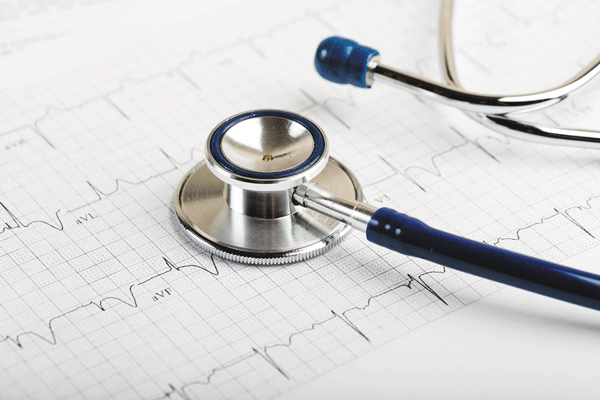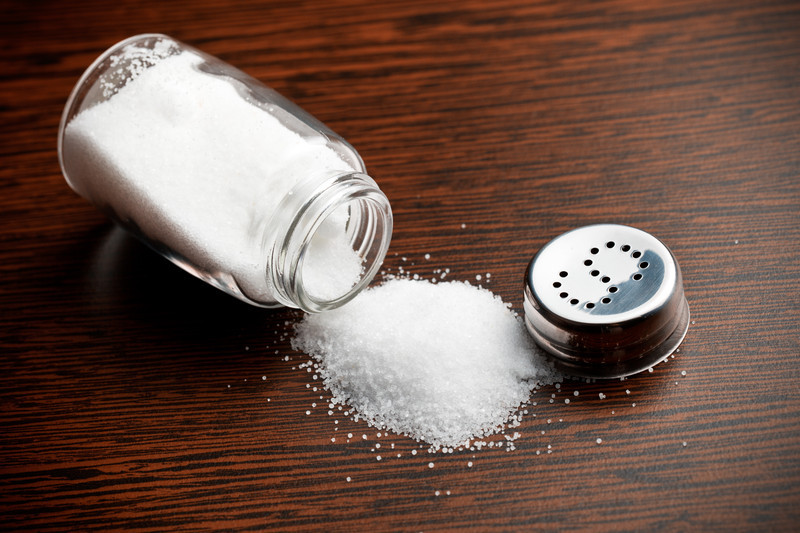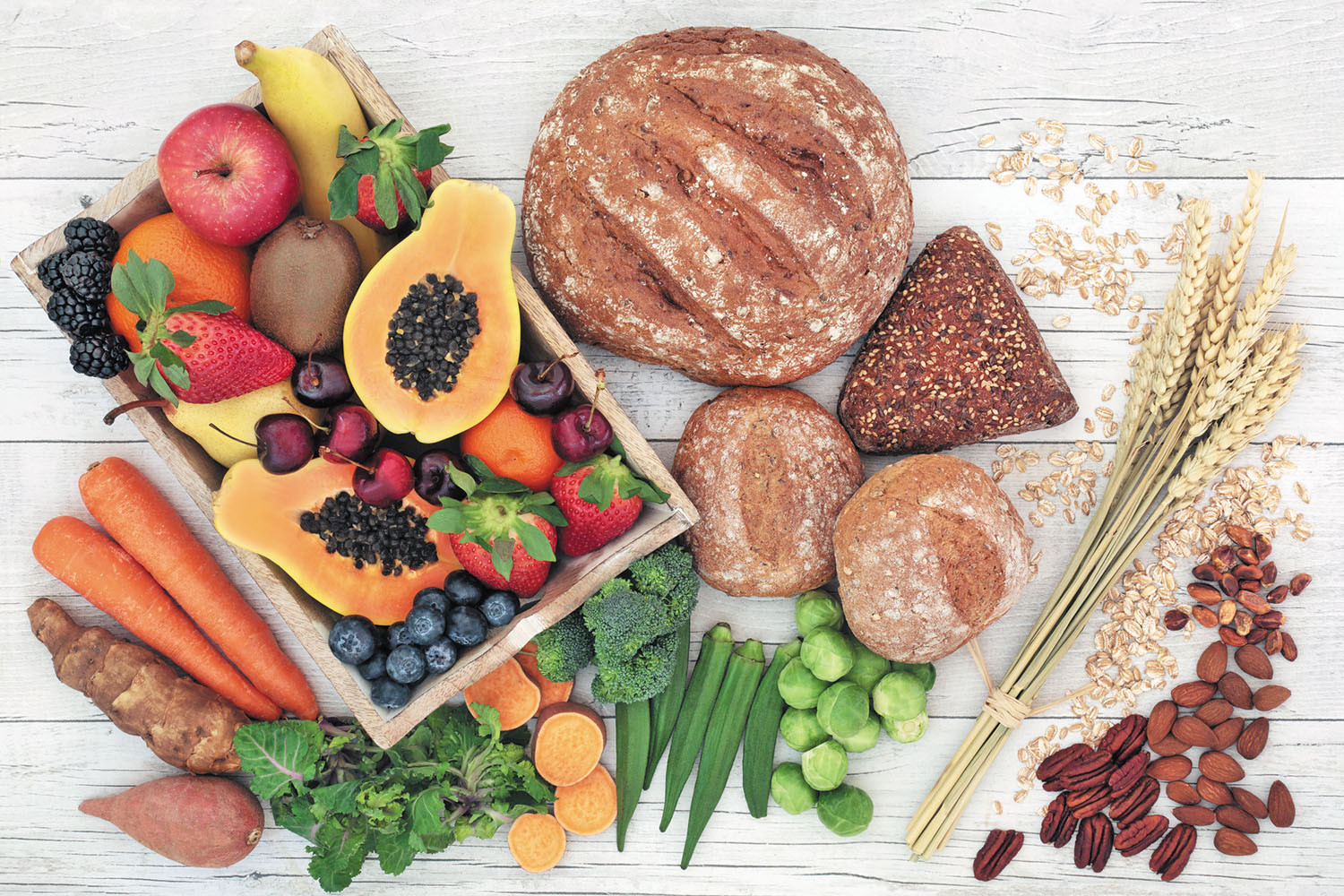
Counting steps is good — is combining steps and heart rate better?

Appendix pain: Could it be appendicitis?

Can saw palmetto treat an enlarged prostate?

How does Ozempic work? Understanding GLP-1s for diabetes, weight loss, and beyond

Zinc: What it does for the body, and the best food sources

Respiratory health harms often follow flooding: Taking these steps can help

Tips to leverage neuroplasticity to maintain cognitive fitness as you age

Can white noise really help you sleep better?

Celiac disease: Exploring four myths

What is prostatitis and how is it treated?
Heart Health Archive
Articles
Monitoring a narrowed, stiff aortic valve
Image: © bowdenimages/Thinkstock
Research we're watching
As some people age, the valve leading to the heart's largest vessel (aorta) can become clogged with calcium deposits, causing the valve to stiffen and narrow. A study in the Oct. 3, 2018, JAMA Cardiology looked at strategies for treating the condition, known as aortic stenosis.
Aortic stenosis — which generally causes no symptoms for many years — is usually detected during a routine check-up. Doctors usually recommend replacing the aortic valve soon after symptoms such as chest pain, shortness of breath, or fainting occur, as these can foretell sudden cardiac death. However, the best strategy for people who have severe aortic stenosis but no symptoms is less clear.
Atrial fibrillation may increase your risk of dementia
Image: Valeriya/Thinkstock
In the journals
People with atrial fibrillation, or afib, a type of irregular heartbeat that is linked with stroke, also may have a greater risk of dementia than those without the condition, according to a study published online Oct. 10, 2018, by Neurology.
Researchers recorded medical data from 2,685 people, average age 73. None of them had dementia and 243 had afib. After nine years, another 279 people developed afib. The researchers found that people with afib showed a faster rate of decline in thinking and memory skills than those without the condition, and were 40% more likely to develop dementia.
Regular exercise helps reverse age-related changes in your heart
Moderate workouts on most days of the week may be enough for heart-healing benefits.
Image: © kali9/Getty Images
Good news: If you've spent most of your life as a competitive master athlete who trains more than six days a week (in addition to competitions) your heart probably looks and performs like one that is much younger than its chronological age.
Doesn't sound like you? Don't worry, there's also some good news for the rest of us. Even if you've spent more time hanging out than working out over the past few decades, starting an exercise program in middle age might earn you a younger-looking heart too.
Benefits of a healthy diet — with or without weight loss
Can you improve your health by changing your diet, even if you are unable to lose weight? Three studies examined different variations on the DASH diet, and all found improvements in blood pressure, plus lower LDL cholesterol and triglycerides in one instance — even without weight loss.
Certain pain relievers could harm your heart
But use is primarily a concern for people who take them over a long period or who have certain health risks.
Image: © clu/Getty Images
Numerous studies in recent years have raised concerns that common pain relievers known as nonsteroidal anti-inflammatory drugs (NSAIDs) increase the risk of cardiovascular problems, such as heart attack and stroke.
A study published September 4 in The BMJ seems to confirm the risks associated with NSAIDs and notes that one medication in particular — diclofenac (Voltaren) — is associated with even higher risks to cardiovascular health than others in the same category.
Dietary supplements: Dubious value, hidden dangers
Most lack evidence of any health benefit — and some contain stimulants that could affect your heart.
Image: © PeopleImages/Getty Images
Of the nearly $37 billion Americans spend on dietary supplements each year, about two-thirds are for vitamins and minerals. The rest are pills, powders, and tinctures that contain various substances isolated from an array of sources — mainly plants but also animals and microorganisms.
Why are these products so popular? Some people believe that our food supply has been stripped of important nutrients, so they take supplements to replace what's "missing" (although many foods are already fortified to replace vitamins that are destroyed during processing). Others feel that Western medicine relies too heavily on pharmaceuticals and prefer to take natural substances instead. (However, a number of common drugs are derived from plants.)
Confused about carbs?
When it comes to carbohydrates, quality and quantity matter — just as with everything else you eat.
Image: © marilyna/Getty Images
These days, low-carb diets are more popular than ever. But this weight-loss strategy is hardly new. It began in the 1960s with the Atkins diet, followed by the South Beach, paleo, and keto diets. All of these diets — which swap carbohydrates for protein or fat — can help some people lose weight, at least over the short term.
But as is true for most diets that require you to avoid many popular foods, low-carb diets are often hard to maintain over the long haul. And if you do keep your carb intake low, the long-term effects on your heart and overall health remain something of a mystery so far. But a new study provides some clues.
The head-heart connection: Mental health and heart disease
Common mental health disorders are linked to a higher risk of heart attack and stroke. Learn to spot the warning signs.
Image: © imtmphoto/Getty Images
Heart disease and mental health issues are both common. So it's not surprising that these problems often occur together. But are people with depression or anxiety more prone to developing cardiovascular disease?
Teasing out the answer to that question has proved tricky. Some factors known to contribute to a higher risk of heart disease (for example, an unhealthy diet, lack of exercise, and smoking) are also common in people with mental health issues. Now, new research that adjusts for those potentially confounding factors suggests the answer is yes.
Take the plunge: Try a water workout
Swimming or doing water aerobics can be a good way to keep your heart in good shape.
Image: © Halfpoint/Getty Images
Looking for an activity to boost your heart health that's easy on your joints and doesn't leave you all sweaty? Swimming might be just the ticket. If you have access to an indoor pool, you can swim or do water aerobics year-round — and throughout much of your life.
"If you were to envision an exercise you could start during childhood and continue well into your later years, swimming has to be near the top of the list," says Dr. Meagan Wasfy, a cardiologist at the Cardiovascular Performance Program at Harvard-affiliated Massachusetts General Hospital. Swimming also works many different muscles in the arms, legs, and torso. The buoyancy of the water takes the stress off your joints. That can make exercising a little easier if you have arthritis, are overweight, or are recovering from an injury.

Counting steps is good — is combining steps and heart rate better?

Appendix pain: Could it be appendicitis?

Can saw palmetto treat an enlarged prostate?

How does Ozempic work? Understanding GLP-1s for diabetes, weight loss, and beyond

Zinc: What it does for the body, and the best food sources

Respiratory health harms often follow flooding: Taking these steps can help

Tips to leverage neuroplasticity to maintain cognitive fitness as you age

Can white noise really help you sleep better?

Celiac disease: Exploring four myths

What is prostatitis and how is it treated?
Free Healthbeat Signup
Get the latest in health news delivered to your inbox!
Sign Up











